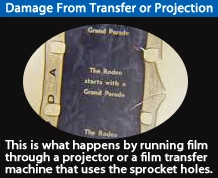- Joined
- Nov 7, 2004
- Messages
- 17,400
- Reaction score
- 5,537
- Location
- Sun Lakes & Show Low, Arizona
- First Name
- Brian
There hasn't been a scanner discussion here in years (I checked), so instead of relying upon outdated information I'm hoping someone - or several someones - will have more recent information to convey to me.
I'm going through boxes that have been closed up for decades and I'm seeing things for the first time, some of which I want to share with distant family members. I have various sizes of photo prints, various sizes of negatives (see below), and a quantity of slides. While I do have a local place that I've used for slide conversions in the past, they aren't cheap so I'm thinking that even if I spent upwards of $500 on a quality unit I'm going to come out ahead in the end (not counting my own time, of course). I have enough material to keep me scanning a couple hours a day for many months.
Because of the variety of the sizes should I go with a flatbed scanner? I currently have an older HP printer/scanner but I'm guessing that a dedicated image scanner is going to provide me with better results, plus I see that some of them have software that will automatically enhance the image, take out scratches, etc.
What should negatives be cleaned with and how before scanning?
These are the majority of the negative sizes I have to scan, but I also have a bunch of the 110 size. The very large negative is a one-only, everything else is smaller.

So, please clue me in on what to look for and why. Thank you.
I'm going through boxes that have been closed up for decades and I'm seeing things for the first time, some of which I want to share with distant family members. I have various sizes of photo prints, various sizes of negatives (see below), and a quantity of slides. While I do have a local place that I've used for slide conversions in the past, they aren't cheap so I'm thinking that even if I spent upwards of $500 on a quality unit I'm going to come out ahead in the end (not counting my own time, of course). I have enough material to keep me scanning a couple hours a day for many months.
Because of the variety of the sizes should I go with a flatbed scanner? I currently have an older HP printer/scanner but I'm guessing that a dedicated image scanner is going to provide me with better results, plus I see that some of them have software that will automatically enhance the image, take out scratches, etc.
What should negatives be cleaned with and how before scanning?
These are the majority of the negative sizes I have to scan, but I also have a bunch of the 110 size. The very large negative is a one-only, everything else is smaller.
So, please clue me in on what to look for and why. Thank you.
Last edited:



 Feel free to hang out and lurk as long as you like. However, we would like to encourage you to
Feel free to hang out and lurk as long as you like. However, we would like to encourage you to 

